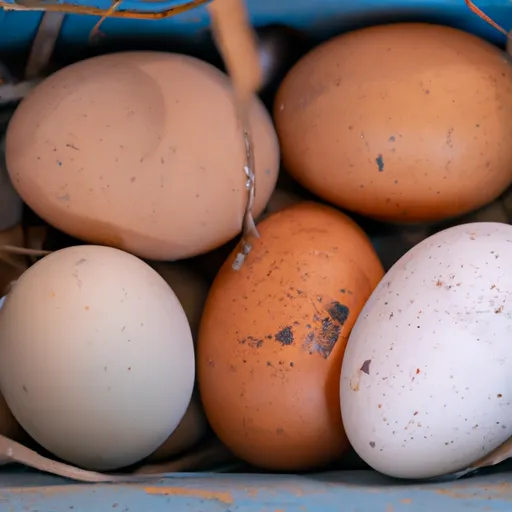Getting More from Your Pullets: The Importance of Proper Nutrition for Optimal Egg Size
Did you know that the size and quality of your pullet’s eggs can be directly linked to their nutritional intake?
It’s true!
A well-nourished pullet will produce larger, stronger eggs with thick shells that are less likely to crack or break.
So now, we’ll explore why proper nutrition is so important for optimal egg size, how to determine if your pullets are getting enough nutrients, common deficiencies that affect egg size, and tips on feeding your pullets for maximum production.
Introduction to Pullet Egg Size
Pullets are young hens that have just started laying eggs.
Their eggs may be smaller than those produced by mature hens, but they still play an essential role in maintaining a healthy flock.
As these birds continue to grow and develop, their egg sizes should increase as well.
However, without adequate nutrition, pullets may struggle to reach their full potential when it comes to producing large, high-quality eggs.
The Importance of Proper Nutrition for Optimal Egg Size
A balanced diet rich in protein, vitamins, and minerals is critical for ensuring that your pullets produce top-notch eggs.
Protein is particularly crucial since it provides the building blocks necessary for strong eggshells.
Without sufficient amounts of protein, your pullets may produce thin-shelled eggs that are prone to breaking.
Vitamin D3 is also vital for promoting calcium absorption, which helps to strengthen eggshell membranes.
Other key nutrients include iron, zinc, copper, and iodine, all of which play important roles in supporting overall pullet health and productivity.
How to Determine if Your Pullets Are Getting Enough Nutrients
One way to tell if your pullets are receiving adequate nutrition is by monitoring their body weight and feather condition.
See also How Rare are Lavender Orpington Chickens?
Healthy pullets should gain weight steadily and have bright, shiny feathers.
You can also check their droppings to see if they appear normal and firm. Soft or runny stools could indicate a nutrient deficiency.
Additionally, examining the color and texture of their eggs can provide clues about their overall health.
For example, pale yellow yolks may signal a lack of vitamin A, while soft-shelled eggs could point to a calcium deficiency.
Common Nutrient Deficiencies that Affect Egg Size
Iron deficiency is one of the most common nutrient deficiencies that impact egg size.
Iron plays a critical role in hemoglobin formation, which helps to transport oxygen throughout the body.
When pullets don’t get enough iron, they may experience anemia, leading to reduced egg production and smaller egg sizes.
Zinc deficiency can also lead to smaller egg sizes since zinc is involved in regulating reproductive hormones.

Copper deficiency can cause poor eggshell quality, resulting in weak, brittle eggs that are more susceptible to cracks and breaks.
Iodine deficiency can lead to goiter, a condition where the thyroid gland becomes enlarged, causing reduced egg production and smaller egg sizes.
Feeding your Pullets for Maximum Egg Production
To ensure that your pullets receive adequate nutrition, it’s essential to provide them with a balanced diet consisting of high-quality feed.
Commercially prepared pullet grower rations are typically formulated to meet the specific needs of growing chickens and should be fed until they reach 18 weeks of age.
After that, you can transition them to layer feed, which contains higher levels of calcium and other essential nutrients needed for optimum egg production.
Providing your pullets with fresh water, exercise, and sunlight can also help to support their overall health and productivity.
See also 3 Chicken Breeds Recommended by Appalachia's Homestead with Patara
Taking Care of Your Pullets for Better Eggs
In conclusion, taking care of your pullets means providing them with proper nutrition, clean living conditions, and access to fresh air and sunlight.
By doing so, you can maximize their egg production and ensure that they continue to produce top-quality eggs for years to come.
Remember, a healthy pullet is a happy pullet, and a happy pullet produces better eggs!
